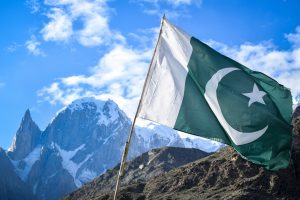Pakistan has announced its decision to hold Gilgit-Baltistan Assembly elections on November 15. Currently, Gilgit-Baltistan is not represented in either house of the national parliament in Pakistan. Thus, the region is not entitled to participate in the country’s several institutional structures.
The Pakistan Muslim League-Nawaz (PML-N) completed its five-year tenure in Gilgit-Baltistan earlier this year but the election has been delayed due to the COVID-19 situation and other political issues. Apart from the Pakistan People’s Party (PPP), PML-N has a strong political base in the region. A transparent election Gilgit-Baltistan will likely bring PML-N back to power.
At this point, it is unclear whether the election will take place independent of any undue interference. November’s election in Gilgit-Baltistan will take place under the military’s supervision and the chances of its interference cannot be ruled out. However, this time around, one cannot be sure if the military wants to play any role beyond ensuring an election acceptable to all political parties.
Arguably, it is not going to be easy to rig the upcoming election. This is not because of administrative reasons but due to political controversy it might generate nationally and internationally, and implications such interference can have on Pakistan’s security policy.
The election has increasingly become the face of the opposition-led agitation campaign, aimed at removing the current government. It is worrying that the debate on the strategically important election has become controversial in Pakistan even before the polls. Last week, Pakistan’s opposition parties boycotted the government’s proposal to hold dialogue with the opposition on Gilgit-Baltistan (GB)’s election. Terming it the “center’s interference in elections,” opposition parties have called the decision a “first step towards implementing their 26-point declaration” to overthrow the government. PMLN has warned against “making any effort to rig the GB polls and said any such action would be against the national interest and national security.”
India’s foreign office recently said that the incoming election in Gilgit-Baltistan has “no legal basis whatsoever.” On the other hand, Islamabad is under pressure from China to grant Gilgit-Baltistan a constitutionally protected status as Beijing doesn’t want to risk its investments in the disputed territory.
Considering that China has been pushing Islamabad for the union of Gilgit-Baltistan with mainland Pakistan, the Pakistani military would want to ensure a transition that is free of political controversy. Further, because of the fact that India has declared its opposition to any move to integrate Gilgit-Baltistan into Pakistan, the country’s civil and military leaders have all the more reason to ensure a peaceful transition of power there.
Pakistan military chief General Qamar Javed Bajwa’s recent meeting with opposition leaders on the constitutional status of Gilgit-Baltistan was quite telling. Prime Minister Imran Khan’s absence from the meeting was noted by all concerned quarters. Arguably, Khan’s absence from the meeting shows two things. One, the country’s military may not be receptive to any idea of siding with the ruling party in the Gilgit-Baltistan election. Second, Pakistan’s political leaders remain at odds with each other and the military has increasingly found itself playing the role of a negotiator. Thus, Khan has left the responsibility of producing consensus among major political stakeholders on the issue to the military.
As things stand, the established balance of the military working with political parties on issues of national security may have been shaken. Opposition parties are demanding a free and fair election before the country’s parliament is engaged to change Gilgit-Baltistan’s constitutional status. This leaves the military in a tough position: a free and fair election is not likely to bring the Pakistan Tehreek-e-Insaf (PTI) to power there. This essentially means that either PPP or PMLN will form the government in Gilgit-Baltistan.
Opposition parties may very well bag a historic win on the heels of an intense clash with the military and the federal government. This might be a tough pill to swallow for the PTI and the military as they will have to support PMLN or PPP-led rule in Gilgit-Baltistan.
Add to this concerns that the move to integrate Gilgit-Baltistan into Pakistan will weaken Islamabad’s position on the Kashmir issue. Abdul Basit, Pakistan’s former high commissioner to India, said he would advise “Islamabad to think hard on the issue of Gilgit Baltistan. A step taken in reaction to what India did to IOK [Indian-occupied Kashmir] will engender avoidable controversies. Don’t stir up hornet’s nest and weaken Pakistan’s principled position on the dispute. At least honor the new political map you issued on August 4.”
However, Pakistan’s history shows that the military has at times preferred managing domestic politics to issues of national significance. It is quite possible that we might see the PTI winning a historic election in Gilgit Baltistan, leaving behind a political mess which will impact Pakistan’s national security and Kashmir policy.

































